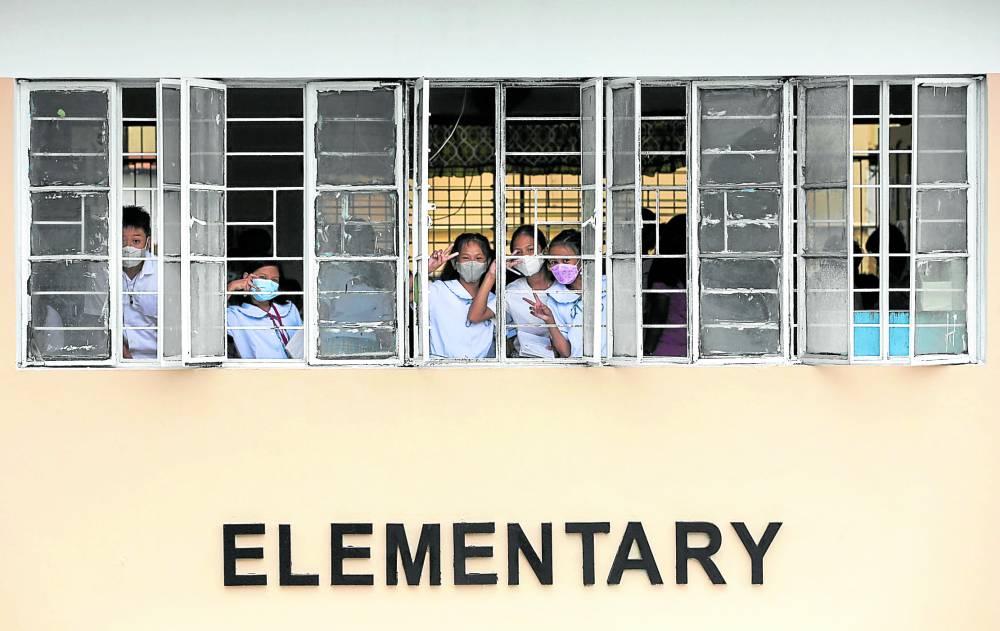Marcos: Shift to old school calendar may happen sooner

It may be critical these days to keep classrooms well-ventilated, like here at Commonwealth Elementary School in Quezon City. LYN RILLON/INQUIRER FILE PHOTO
MANILA, Philippines — President Ferdinand Marcos Jr. on Wednesday vowed to find a way for the government to complete the transition to the old school calendar earlier than planned amid the intense heat now searing the country.
“We will try to do it even as we believe that we will face some difficulty, but we will try to find a way to have this transition completed earlier to put the schedule of our schoolchildren back to normal at the soonest time,” he said.
Classes in various parts of the country have been suspended while some have shifted to online learning instead of face-to-face over the intense heat caused by the combined effects of a strong El Niño and the onset of the summer season.
READ: Schools suspend, tweak in-person classes April 8-12 amid heat
Marcos conceded that the government was caught off guard by the recent changes in temperature, upsetting plans for an earlier school opening in June.
Article continues after this advertisement“Our main problem now is how climate change has altered the seasons, such that we did not expect that [the heat] would be like this; usually by now, temperatures would be starting to rise but we have been having this intense heat early on,” he said on the sidelines of the “Bagong Pilipinas” town hall meeting in San Juan.
Article continues after this advertisementAlong with Marcos, several teachers’ groups, including the Alliance of Concerned Teachers and Teachers’ Dignity Coalition, have urged the Department of Education (DepEd) to immediately shift back to the old academic calendar.
Five-year time frame
DepEd, however, rejected the idea, saying the decision to do it gradually was the result of “extensive consultations” with various stakeholders.
In its current plan, it laid down a five-year period for the gradual return to June-March classes, starting this school year.
“To reduce the timeline any further would have significant impacts not only on learning outcomes but also on the well-being of learners and teachers due to the lack of sufficient breaks,” DepEd Undersecretary and spokesperson Michael Poa said in a statement he sent to the media on Wednesday afternoon.
“It is already an established policy that schools may switch to alternative delivery modes (ADMs) in the event of man-made or natural disasters, including weather disturbances,” he added.
Of the 47,678 public schools. a total of 5,844 have already switched to the so-called ADMs. For Poa, this means that “not all schools are similarly situated.”